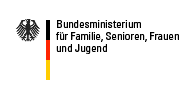Cooperation in development policy - Aspects
Cooperation in development policy - Aspects
- System: A sustained development policy requires that gender perspectives are taken into account in all project phases, from the identification, planning and implementation of projects right through to their monitoring and evaluation. For this, gender-differentiated indicators are needed. These help to assess:
- which qualitative and quantitative differences exist in the participation of women and men in the projects in question and
- what different benefit does who get from a project and in what respect?
- In/formal sector: If gender perspectives are not taken into account, whole areas are left out which are very important for fighting poverty. For instance, measures for supporting transport infrastructure in African countries are often geared to the demands of the formal sector. So it is mostly the needs of men that are catered for. Women, who spend far more time transporting goods for the household or the local market, have far fewer transport routes and means of transport available to them. Gender Mainstreaming tools then help to integrate gender perspectives into transport policy to take equal account of the needs of women and of men. Bearing gender in mind means taking into account not just the formal sector but also the informal sector, in which women are often more present than men.
- Competence: The design, and hence the success, of development projects is affected by the perception of gender relations, or even by shutting them out altogether. Gender training courses can make staff aware of ways of organising the implementation of development policy so that projects can be planned and implemented in a way taking proper account of gender. What is important here is to combine gender knowledge with intercultural competence.
- NGOs: An important part of cooperation in development work that takes proper account of gender is the support of non-governmental organisations (NGOs) and lobby groups which are committed to gender equality between women and men. One example is the support of the Society for Technical Cooperation for the South African NGO “Women’s Budget Initiative”. This group, in keeping with the principle of gender budgeting, is lobbying the South African state to implement a budget and finance policy that takes proper account of gender.
Further reading:
UNDP/GDP: Gender Mainstreaming Information Pack, New York 1998.
UNDP/GDP: Millennium Development Goals. National Reports. A Look trough a Gender Lens, New York 2003.
OECD/DAC: Gender Equality in Sector Wide Approaches. A Reference Guide , Paris 2002.
OECD/DAC: DAC Guidelines for Gender Equality and Women’s Empowerment in Development Cooperation, Paris 1999.
OECD/DAC: DAC Source Book on Concepts and Approaches linked to Gender Equality, Paris 1998.
GTZ: Gender und Projektmanagement. Ein Beitrag zum Qualitätsmanagement der GTZ , Eschborn 1999.
Women’s Budget Initiative: Money Matters. Workshop Materials on Gender and Government Budgets, Cape Town 2000.United Nations. Platform for Action adopted at the Fourth World Conference on Women, Beijing 1995. Text and selected national action plan
UN-DAW: Convention on the Elimination of All Forms of Discrimination against Women (CEDAW). 1981.
Bundesministerium für Familie, Senioren, Frauen und Jugend (BMFSFJ): Dokumentation der Erklärung und Aktionsplattform der 4. Weltfrauenkonferenz 1995. Gleichberechtigung - Entwicklung - Frieden, Bonn 1996.
Dt. Frauenrat, FES, HBS, RLS, Womnet: Peking +10, Die Beschlüsse der 4. Weltfrauenkonferenz auf dem Prüfstand, 2005.
Frey, Regina: Gender im Mainstreaming – Geschlechtertheorie und –praxis im internationalen Diskurs, Königstein/Taunus 2003.
Frey, Regina: Training Gender? Theoretische Voraussetzungen entwicklungspolitischer Gender-Trainings, Peripherie, Nr. 77-78/2000, S. 123-142.
Goetz, A.M. (ed.). Getting Institutions Right for Women in Development. London, Zed Books, 1997.
Jahan, Rounaq. The Elusive Agenda: Mainstreaming Women in Development. London, Zed Books, 1995.
Levy, C. The Process of Institutionalising Gender in Policy and Planning: The “Web” of Institutionalization. Development Planning Unit, University College of London, Working Paper No. 74. March 1996.
Longwe, Sara Hlupekile. “The evaporation of policies for women’s advancement.” Pp. 127-140 in Noeleen Heyzer (ed.) A Commitment to the World’s Women. Perspectives on Development for Beijing and Beyond. New York: UNIFEM, 1995.
Razavi, Shahra. “Fitting gender into development institutions.” World Development Vol. 25, No. 7 (1997): 1111-1125.
Schalkwyk, J, H. Thomas and B. Woroniuk. Mainstreaming: A Strategy for Achieving Equality between Women and Men. Sida, Department for Policy and Legal Services, 1996.
Sida. Making a Difference. Gender Equality in Development Cooperation. Stockholm: Sida, 1999.
Woroniuk, B. H. Thomas, and J. Schalkwyk. Gender: The Concept, its Meaning and Uses. Sida, Department for Policy and Legal Services, 1997.





